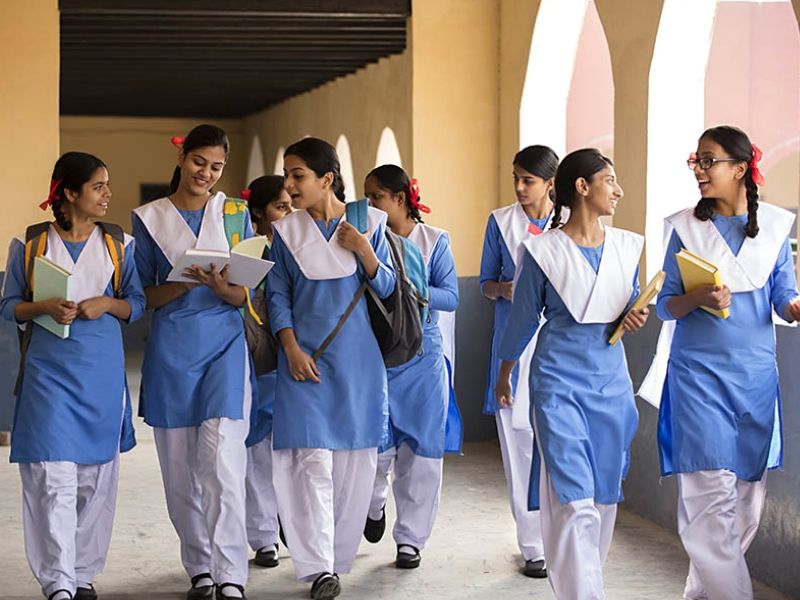The Union Cabinet chaired by the Prime Minister Shri Narendra Modi today approved the National Education Policy 2020. The new policy released by the union education minister Ramesh Pokhriyal Nishank and Prakash Javadekar, minister of information and broadcasting aims to pave way for transformational reforms in school and higher education systems in the country. This policy will replace the 34 your old National Policy on Education (NPE), 1986.
Speaking at the launch, Ramesh Pokhriyal Nishank, the education minister, congratulated educators and students for bringing in a ‘reform’ in the education system with the new policy. “This is a historic moment. The education policy has been reformed after 34 years, under the prime ministership of Narendra Modi, after a wide consultation with everyone – state education departments, experts, academicians, students, teachers and public representatives. After we uploaded the draft online, we received over 2.25 lakh feedbacks from the public. The experts considered every feedback and I am confident that this policy will set an example for the entire world,” he said.
Prakash Javadekar, minister of information and broadcasting added that the policy aims to make India an education hub for students all across the globe.
Highlights of the NEP 2020
School Education
- New Policy aims for universalisation of education from pre-school to secondary level with 100 percent Gross Enrolment Ratio (GER) in school education by 2030.
- NEP 2020 will bring 2 crore out of school children back into the main stream through open schooling system.
- The current 10+2 system to be replaced by a new 5+3+3+4 curricular structure corresponding to ages 3-8, 8-11, 11-14, and 14-18 years respectively. This will bring the hitherto uncovered age group of 3-6 years under school curriculum, which has been recognized globally as the crucial stage for development of mental faculties of a child.
- The new system will have 12 years of schooling with three years of Anganwadi/ pre schooling.
- Emphasis on Foundational Literacy and Numeracy, no rigid separation between academic streams, extracurricular, vocational streams in schools ; Vocational Education to start from Class 6 with Internships
- Teaching up to at least Grade 5 to be in mother tongue/ regional language. No language will be imposed on any student.
- Assessment reforms with 360 degree Holistic Progress Card, tracking Student Progress for achieving Learning Outcomes
- A new and comprehensive National Curriculum Framework for Teacher Education, NCFTE 2021, will be formulated by the NCTE in consultation with NCERT. By 2030, the minimum degree qualification for teaching will be a 4-year integrated B.Ed. degree
Higher Education
- Gross Enrolment Ratio in higher education to be raised to 50 % by 2035 ; 3.5 crore seats to be added in higher education.
- The policy envisages broad based, multi-disciplinary, holistic Under Graduate education with flexible curricula, creative combinations of subjects, integration of vocational education and multiple entry and exit points with appropriate certification. UG education can be of 3 or 4 years with multiple exit options and appropriate certification within this period.
- Academic Bank of Credits to be established to facilitate Transfer of Credits
- Multidisciplinary Education and Research Universities (MERUs), at par with IITs, IIMs, to be set up as models of best multidisciplinary education of global standards in the country.
- The National Research Foundation will be created as an apex body for fostering a strong research culture and building research capacity across higher education.
- Higher Education Commission of India(HECI) will be set up as a single overarching umbrella body the for entire higher education, excluding medical and legal education. HECI to have four independent verticals – National Higher Education Regulatory Council (NHERC) for regulation, General Education Council (GEC ) for standard setting, Higher Education Grants Council (HEGC) for funding, and National Accreditation Council( NAC) for accreditation.
- Public and private higher education institutions will be governed by the same set of norms for regulation, accreditation and academic standards.
- Affiliation of colleges is to be phased out in 15 years and a stage-wise mechanism is to be established for granting graded autonomy to colleges. Over a period of time, it is envisaged that every college would develop into either an Autonomous degree-granting College, or a constituent college of a university.
Others
- An autonomous body, the National Educational Technology Forum (NETF), will be created to provide a platform for the free exchange of ideas on the use of technology to enhance learning, assessment, planning, administration.
- NEP 2020 emphasizes setting up of Gender Inclusion Fund, Special Education Zones for disadvantaged regions and groups
- New Policy promotes Multilingualism in both schools and higher education. National Institute for Pali, Persian and Prakrit , Indian Institute of Translation and Interpretation to be set up
- The Centre and the States will work together to increase the public investment in Education sector to reach 6% of GDP at the earliest.
Read: Draft National Education Policy 2019: More Government More governance
Posted in National, News


























